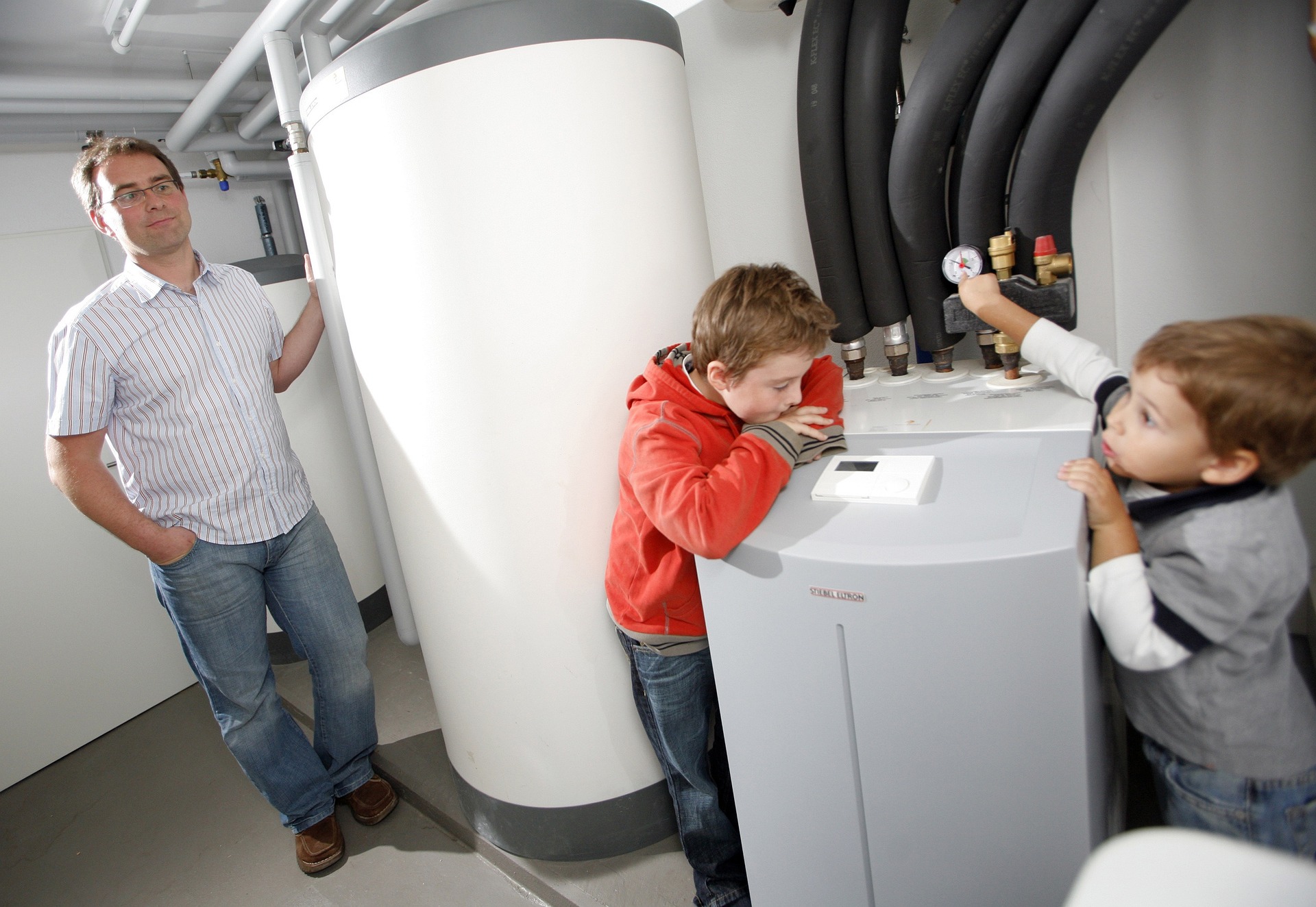The Ultimate Heat Pump Guide: Why Modern Heat Pumps Are Your Best Choice
Heat pumps have revolutionized home heating and cooling, offering an energy-efficient alternative to traditional HVAC systems. As we delve into this comprehensive heat pump guide, we'll explore why modern heat pumps are increasingly becoming the best choice for homeowners across Canada. From their eco-friendly operation to their year-round functionality, heat pumps are transforming the way we think about climate control in our homes

What exactly is a heat pump and how does it work?
A heat pump is a versatile heating and cooling system that transfers heat from one location to another. Unlike traditional furnaces that generate heat, heat pumps move existing heat from the outside air or ground into your home during winter. In summer, the process is reversed, extracting heat from your home and expelling it outdoors. This unique ability to both heat and cool makes heat pumps a year-round climate control solution.
The system works on the principle of heat exchange, using refrigerant to absorb and release heat. During the heating cycle, the outdoor unit extracts heat from the air or ground, even in cold temperatures. This heat is then compressed, raising its temperature, and distributed throughout your home. In cooling mode, the process is reversed, with the indoor unit absorbing heat from your home and releasing it outside.
Why are modern heat pumps considered more efficient?
Modern heat pumps are considered highly efficient for several reasons. Firstly, they don’t create heat; they simply move it, which requires less energy than traditional heating methods. This process can be up to 300-400% efficient, meaning for every unit of electricity used, 3-4 units of heat are produced. In contrast, even the most efficient gas furnaces are limited to about 98% efficiency.
Additionally, technological advancements have significantly improved heat pump performance. Inverter-driven compressors allow for variable speeds, adjusting output based on demand and maintaining consistent temperatures. This reduces energy consumption and wear on the system. Improved defrosting capabilities and cold climate performance have also expanded the effective operating range of heat pumps, making them viable options even in Canada’s colder regions.
What types of heat pumps are available for Canadian homes?
Canadian homeowners have several types of heat pumps to choose from, each suited to different needs and geographical locations:
-
Air-source heat pumps: The most common type, these extract heat from outdoor air. They’re relatively easy to install and work well in moderate climates.
-
Ground-source (geothermal) heat pumps: These use the constant temperature of the earth to heat and cool homes. While more expensive to install, they’re extremely efficient and work well in colder climates.
-
Water-source heat pumps: Similar to ground-source systems, but use a body of water as the heat exchange medium. These are ideal for homes near lakes or ponds.
-
Ductless mini-split heat pumps: Perfect for homes without ductwork or for heating specific zones. They consist of an outdoor unit connected to one or more indoor air handlers.
-
Hybrid heat pumps: These systems combine a heat pump with a backup heating source, usually a gas furnace, to ensure efficient heating even in extremely cold temperatures.
How do heat pumps perform in Canada’s cold winters?
Contrary to popular belief, modern heat pumps can perform effectively even in Canada’s cold winters. While traditional heat pumps struggled in sub-zero temperatures, today’s cold climate heat pumps can operate efficiently at temperatures as low as -25°C to -30°C.
These advanced systems use improved compressor technology and refrigerants designed for low-temperature operation. Some models also incorporate supplementary heating elements or work in tandem with existing heating systems to ensure comfort during extreme cold snaps.
It’s important to note that efficiency may decrease as temperatures drop, but many cold climate heat pumps can still outperform traditional heating systems even in harsh Canadian winters. Proper sizing and installation by a qualified professional are crucial for optimal performance in cold climates.
What are the environmental benefits of choosing a heat pump?
Choosing a heat pump offers significant environmental benefits, making it an attractive option for eco-conscious homeowners. Heat pumps produce no direct emissions at the point of use, unlike gas furnaces or oil-based heating systems. When powered by clean electricity, they can significantly reduce a home’s carbon footprint.
In Canada, where many provinces have clean electricity grids dominated by hydroelectric, nuclear, or renewable sources, heat pumps can be an extremely low-emission heating and cooling solution. Even in regions with more carbon-intensive electricity, the high efficiency of heat pumps often results in lower overall emissions compared to fossil fuel-based heating systems.
Moreover, heat pumps reduce reliance on fossil fuels, contributing to energy independence and sustainability. As Canada moves towards a cleaner energy future, heat pumps align perfectly with national and provincial climate goals, making them a future-proof choice for home climate control.
What are the cost considerations for installing a heat pump?
When considering a heat pump installation, it’s important to understand the associated costs and potential savings. While the initial investment may be higher than traditional HVAC systems, the long-term energy savings can be substantial.
| Heat Pump Type | Average Installation Cost | Annual Operating Cost Savings |
|---|---|---|
| Air-Source | $3,000 - $8,000 | 30-50% compared to electric resistance heating |
| Ground-Source | $20,000 - $40,000 | 50-70% compared to conventional systems |
| Ductless Mini-Split | $3,000 - $5,000 per zone | 25-40% compared to baseboard heating |
| Hybrid System | $7,000 - $12,000 | 15-35% compared to standalone systems |
Prices, rates, or cost estimates mentioned in this article are based on the latest available information but may change over time. Independent research is advised before making financial decisions.
The cost of installation varies widely depending on the type of heat pump, the size of your home, and local labor rates. However, many provinces offer rebates and incentives for heat pump installations, which can significantly offset the initial costs. Additionally, the energy savings over time can lead to a positive return on investment, often within 5-10 years.
It’s also worth noting that heat pumps can increase your home’s value, as energy-efficient homes are increasingly desirable in the real estate market. When considering the long-term financial implications, factoring in both the upfront costs and potential savings is crucial for making an informed decision.
In conclusion, modern heat pumps offer a compelling combination of efficiency, environmental benefits, and year-round comfort for Canadian homeowners. While the initial investment may be higher than traditional systems, the long-term energy savings and reduced environmental impact make heat pumps an excellent choice for those looking to upgrade their home’s climate control system. As technology continues to advance, heat pumps are poised to play an increasingly important role in Canada’s residential heating and cooling landscape.




